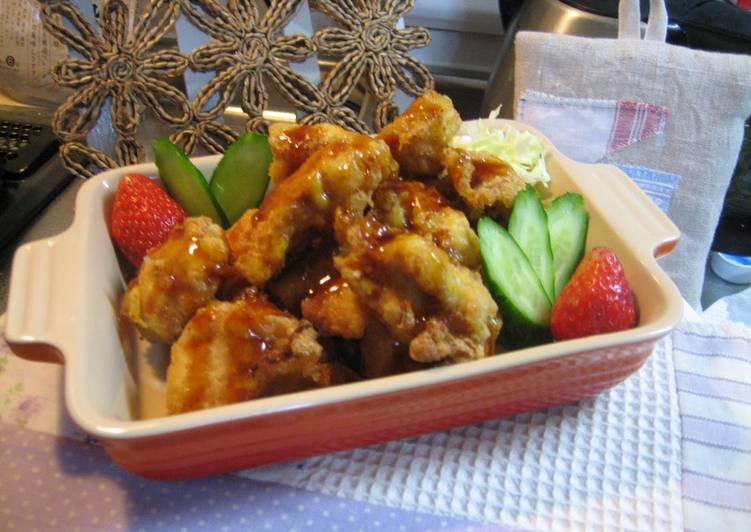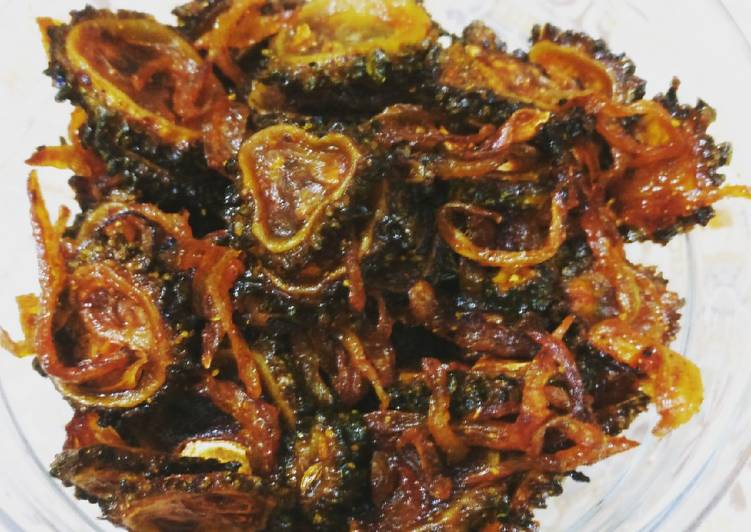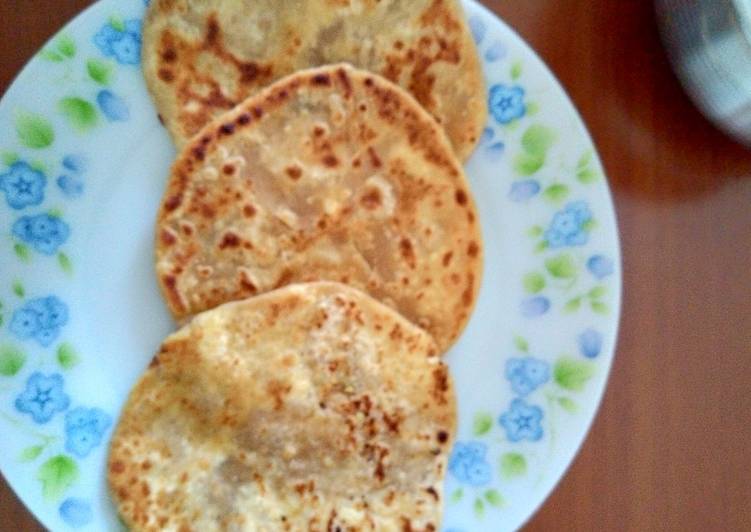
Hello everybody, it is John, welcome to our recipe page. Today, I will show you a way to prepare a distinctive dish, our family's chicken with nanban sauce. It is one of my favorites food recipes. For mine, I’m gonna make it a little bit tasty. This is gonna smell and look delicious.
Our Family's Chicken with Nanban Sauce is one of the most popular of current trending meals on earth. It is enjoyed by millions every day. It’s simple, it is quick, it tastes delicious. They’re nice and they look fantastic. Our Family's Chicken with Nanban Sauce is something that I have loved my entire life.
Authentic Chicken Nanban recipe based on the original from Miyazaki Japan, made with fried chicken coated in a crispy egg batter marinated in a sweet and sour Chicken Nanban is always served with a side of Japanese tartar sauce, and it usually includes some thinly shredded cabbage on the side. Nanban sauce or vinegar is most commonly used for nanban dishes. Chicken Nanban is a local specialty in Miyazaki Prefecture.
To begin with this particular recipe, we have to first prepare a few components. You can have our family's chicken with nanban sauce using 6 ingredients and 11 steps. Here is how you can achieve it.
The ingredients needed to make Our Family's Chicken with Nanban Sauce:
- Get 2 Chicken breast meat
- Take 1 Mayonnaise
- Get 5 tbsp of each Vinegar, sugar, soy sauce
- Get 1 heaping teaspoon Katakuriko
- Get 1 Katakuriko (for coating the chicken)
- Take 2 Eggs
Chicken Nanban is a regional cuisine from Miyazaki Prefecture in Kyushu Island (most southwesterly of Japan's four main islands) but now I usually serve Chicken Nanban with eggplant and bell pepper (eggplant is a must!). If you can find shiso leaves (Perilla) in Japanese or Korean supermarket, I. Chicken Nanban is deep-fried chicken with tartar sauce, a dish from Miyazaki prefecture in Kyusyu, the southern big island of Japan. They say that Chicken Nanban was first developed for employees in restaurant in Miyazaki.
Steps to make Our Family's Chicken with Nanban Sauce:
- Pierce the chicken meat several times with a fork.
- Cut into bite size pieces and put into a bowl. Mix with some mayonnaise. (You can use this method if you're going to sauté the meat too.)
- Add the vinegar, sugar, and soy sauce into a pot and heat. Once the sugar has melted, add a slurry of katakuriko dissolved in 1 tablespoon of water. Mix well.
- Stir 2 to 3 times and remove from heat.
- Coat the chicken with katakuriko.
- Break the eggs into the bowl and beat. Mix so that the chicken gets thoroughly coated with the egg.
- Fry the chicken at a low temperature to cook thoroughly, although this depends on the size of the chicken pieces.
- In our house we like the pour the thickened an sauce over the chicken, but you can pre-mix it before serving. Add tartare sauce to taste.
- I added a ton of shredded cabbge on top of rice to make a rice bowl that my boys love.
- Delicious the next day in a bento too, since they stay tender even when cold.
- Really good between slices of bread!! Add some vegetables and fruit for a balanced meal!
Chicken nanban is an example of "yoshoku", Western style food that has been adapted to suit Japanese tastes. This succulent chicken dish originated in Miyazaki Prefecture in the far South of Japan. Topped off with rich tartar sauce, this dish is particularly nice with a side of chips or new. Japanese food is so healthy because it gets its flavor from spices and carefully brewed stocks rather than from copious amounts of oil. But that doesn't mean Japanese food doesn't taste good (visit any sushi restaurant and order a tuna roll and you'll literally have a mouthgasm).
So that’s going to wrap this up for this special food our family's chicken with nanban sauce recipe. Thanks so much for reading. I am sure that you can make this at home. There is gonna be interesting food at home recipes coming up. Remember to bookmark this page in your browser, and share it to your loved ones, friends and colleague. Thanks again for reading. Go on get cooking!

